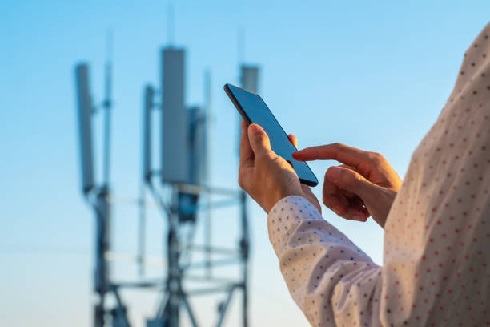How quickly it is expanding and eating chunks of the industry & only getting more powerful with 5G. For Mobile Gaming. In this article, we will talk about how the change that Asus announced during IFA —Mobile gaming future from the point of an OEM playing in numbers..applicable for improvement but also some challenges facing ahead to tackle based on our work here as well provide circa ideas what else can be experimented going forward).
The Promise of 5G: Speed and Efficiency
What has led to such high praise for the 5G property is its completion speed. And whoah wait for there, 5G can achieve speeds of up to 10 Gbps — yes that’s still ten times faster than what will be possible with current solutions en vogue (cut it out you FCC) and about a hundred times FASTER than our bandwidth munching friend LTE. That near-instantaneous data transfer means you can start downloading a game or update right away and it should be mirrored on the console in no time. Theoretically, a game that could take minutes to download under 4G can be blitzed down in seconds with the aid of 5G.
Lower Latency
The crucial bit in a game is—latency, i.e., the time elapsing between an instruction to go and when you start going. High latency means that you can experience lag when doing fast actions, such as in many of the newer games with real-time and quick responses. 5G, however, with its jaw-drop technology, has changed the latency to as low as 1 millisecond (down from previous generations of about 30-50 milliseconds) during initialization. This results in significantly reduced input lag, offering the first truly nearly instant gaming possible due to its dramatically smoother gameplay feel with minimal response time to controls across the board.
Increased Bandwidth
The reason is 5G, which offers faster bandwidth so that more and larger information can be moved simultaneously. This is exactly the kind of service that requires high-bandwidth data exchange – because we power multiplayer games like slot and cloud gaming networks. What this means in practical terms is that the same 5G connection could either host a single MMO crowded with hundreds of players or an over-100-person battle royale without performance being eaten away at from early on.
Enhancing Mobile Gaming Experiences
Indeed, 5G is not only a high-potential ultrafastrack technology able to overcome the existing bandwidth/latency-related challenges for cloud-based game streaming platforms but also has potential implications of how mobile gaming could be reinvented in ways that nearly no previous technologies (including all land networks) have managed before.
Cloud Gaming: The catch-all term for new — or often not so new, as we’ll see with NVIDIA — services that let you play games straight from the cloud without worrying about owning expensive hardware and a graphics card. All the processing is done on remote servers, and your device only gets a streamed video feed. Due to this fact, high-quality game projects even on relatively old and powerless smartphones can work at the cost of much faster signals with a lot lower delay – 5G.
Challenges and Considerations
Deployment in this way is costly and takes time so the first few 5G deployments may be limited to rich regions with large cities. 5G may bring big promises for rural and underserved, though those core benefits might have to wait.
Is it Cost: Then the cost of implementing and using 5G technology. 5G is expensive, and that follows through with the costs for buying devices new enough to be 5G compatible as well as data plans on the newest networks if you have it. Free prices could box up 5G adoption to specific beneficiaries when it gets released for mobile gaming, with restrictions affecting range or deployment.
Security Concerns: 5G brings in a whole lot of fresh security concerns just like any new technology. The rise in connectivity and transfer of information has provided a wealth of resources for cyber-attacks to steal an impressive amount of personal data. With 5G gradually becoming more common amongst the general public, alongside gamers as well – this brings forth requirements for much better security to protect our data and privacy.
Conclusion
At those higher speeds, on more responsive networks with greater bandwidth 5G can now (kind of) deliver a gaming experience you simply wouldn’t have been able to get on the move before using either cellular or WiFi technologies. What 5G brings to the table for mobile gaming goes far beyond just changing cloud games, AR/VR apps, and game design innovations altogether new levels of multiplayer interactivity. All of this is still nascent for blockchain, and there are quite a few infrastructure issues – both on how to adapt it and make performance better so that everyone can use a variant without totally bankrupting themselves. As its global rollout develops, we truly learn the big-picture implications that 5G brings to a new era of innovation and transformation across gaming.
Read more: Mobile Gaming Experiences
